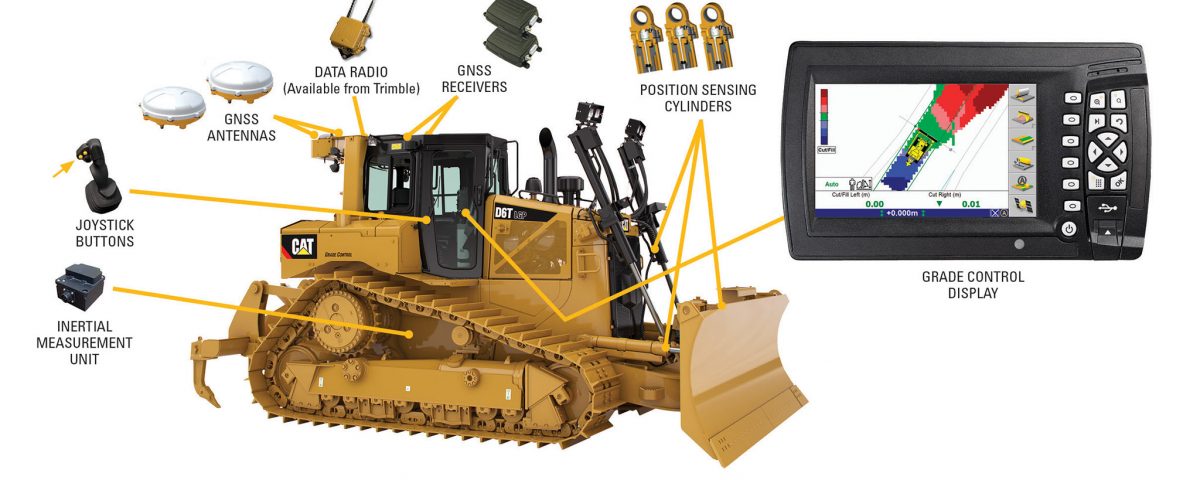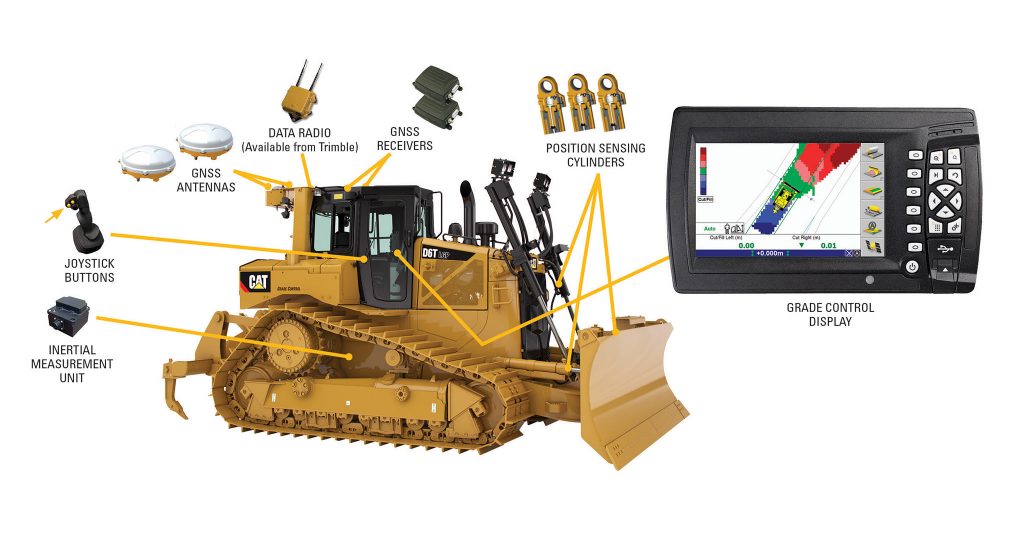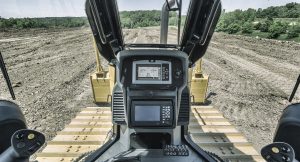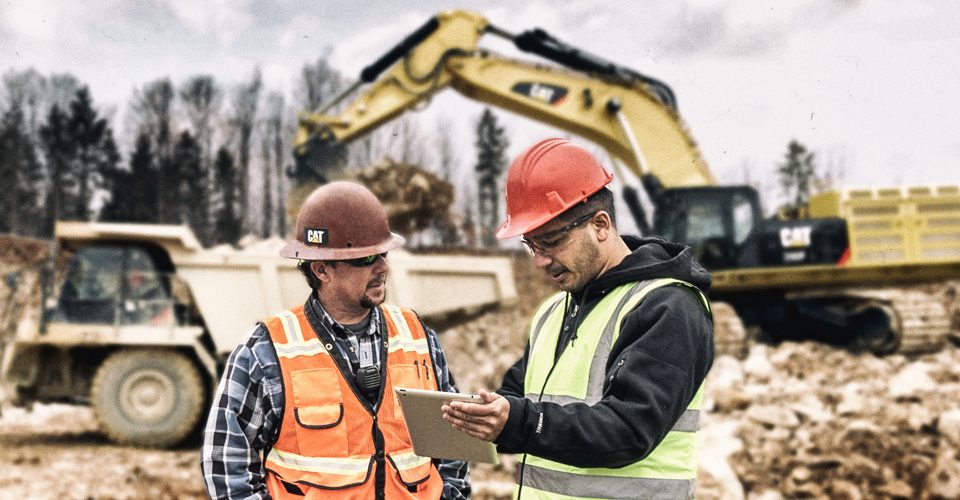- Professional Construction Software Solutions
- 480-705-4241
Technology and Connectivity Fueling Digital Construction Jobsites

Bluebeam Revu Auto Size MarkUps
June 2, 2016Bluebeam Tip: When the Navigation Bar is Hidden
July 13, 2016Technology and Connectivity Fueling Digital Construction Jobsites

Optional Cat Grade Control 3D—a Cat Connect GRADE technology—boosts grading efficiency, accuracy and productivity as much as 50% over traditional production dozing and fine grading methods, with no masts or cables on the blade.
Digital construction is much more than eliminating paper. It’s automating data collection and connectivity, then leveraging numerous technologies including the Internet of Things (IOT) and converting that information into actionable items for the benefit of your construction firm and your team in the field. I’d like to thank our guest post author, Lonnie Fritz, Heavy Construction Industry Consultant at Caterpillar Inc for writing this article and contributing to the digital construction topic on my blog.

Optional Cat Grade Control 3D—a Cat Connect GRADE technology—boosts grading efficiency, accuracy and productivity as much as 50% over traditional production dozing and fine grading methods, with no masts or cables on the blade.
The fully connected digital worksite is more than likely the biggest opportunity construction project managers and fleet owners are missing out on when looking at enhancing their operations.
Intelligent construction is the way of the future. It’s not how hard you work in today’s construction industry, but rather how smart you work that is going to improve your bottom line. Having a fully connected digital worksite removes the guesswork and empowers contractors to expedite their projects with confidence.
Using equipment with CAT technologies can help your business increase productivity and better control costs by achieving specific results including:
1. Managing your equipment costs
With the introduction of the Association of Equipment Management Professionals (AEMP) Telematics Standard in the winter of 2014, mixed fleet managers, either on-site or off-site, now have access to critical data concerning their equipment, such as machine location, fuel consumption and operator behavior in the palm of their hand.
Telematics data gives you more control over maintenance and repair needs of your fleet. The longer you can effectively stretch maintenance intervals, the more time and money you can save. Such data also brings maintenance and repair information to a manager’s attention before maintenance issues become critical problems. This substantially reduces unplanned downtime and repair costs.
2. Making the most out of your fleet
Connected construction worksites allow project managers to get the most out of their fleets. The more connected your machines are and the more effectively your crew uses the data they produce, the faster you will start to see tangible results. Variables such as equipment utilization, in terms of right-sizing the number of machines on-site, and equipment productivity can be determined. Both can help in setting cost predictions for future project bidding.
3. Taking your operators to the next level
Machine control technologies that offer automatic or automated functions help improve operator productivity, which improves the bottom lines of projects in several ways.

Cat Slope Indicate, Cat Stable Blade and Cat GRADE with Slope Assist are built-in, user-friendly features that help operators at any skill level complete high-quality grading faster and with less effort.
A prime example of this is Cat GRADE, a part of Cat Connect Technology. Operating a dozer is one thing, but it takes far more expertise to shape terrain. With Cat GRADE in place, you can expect to reduce rough-grading and finish-grading costs, reduce material costs, and decrease rework overall by as much as 50 percent. Machine control technologies allow operators to manage the project and the materials, not just the machine.
As soon as you activate telematics data-feed capabilities and log into a reporting interface like VisionLink®, you’re able to take advantage of outstanding productivity benefits, as well. For most construction company owners who employ smaller fleets, this technology can deliver immediate productivity results. Larger fleets or fleets working several projects at the same time should concentrate on creating a technology plan centering around the most cost effective equipment and technology pairings.
When you decide to take your worksite digital, the decisions that need to made for that project can be made by the right people at the appropriate time in order to get the job done as efficiently as possible. However, the benefits are not limited to those areas mentioned above.
A positive byproduct of a connected worksite is an increase in safety. Our Cat® Connect Technology can send alerts and fault codes out to operators or foremen when there is a situation that requires their immediate attention. As more machines are connected on the worksite, your fleet will become progressively more efficient, safe and productive.
Falling behind the competition and facing greater profitability challenges are real risks in the construction world today. Technologies that enable optimally connected digital worksites reduce those risks. Ultimately, digital worksites are meant to make your work more efficient, improve your profit margins and enhance workplace safety. Why wait?
If you liked this article you may also be interested in:
The Construction Office Imperative: Digitize, Go Paperless and Mobile
Construction Plan and 3D Model Markups will Never Be the Same
Information Chaos in the Construction Industry

